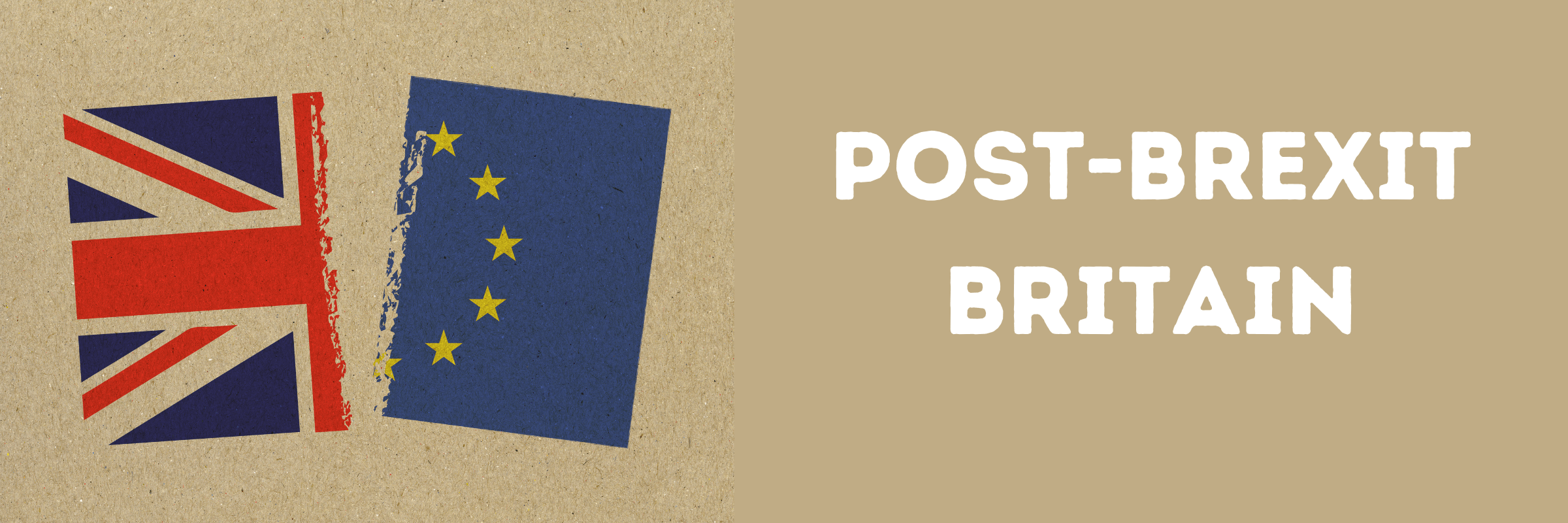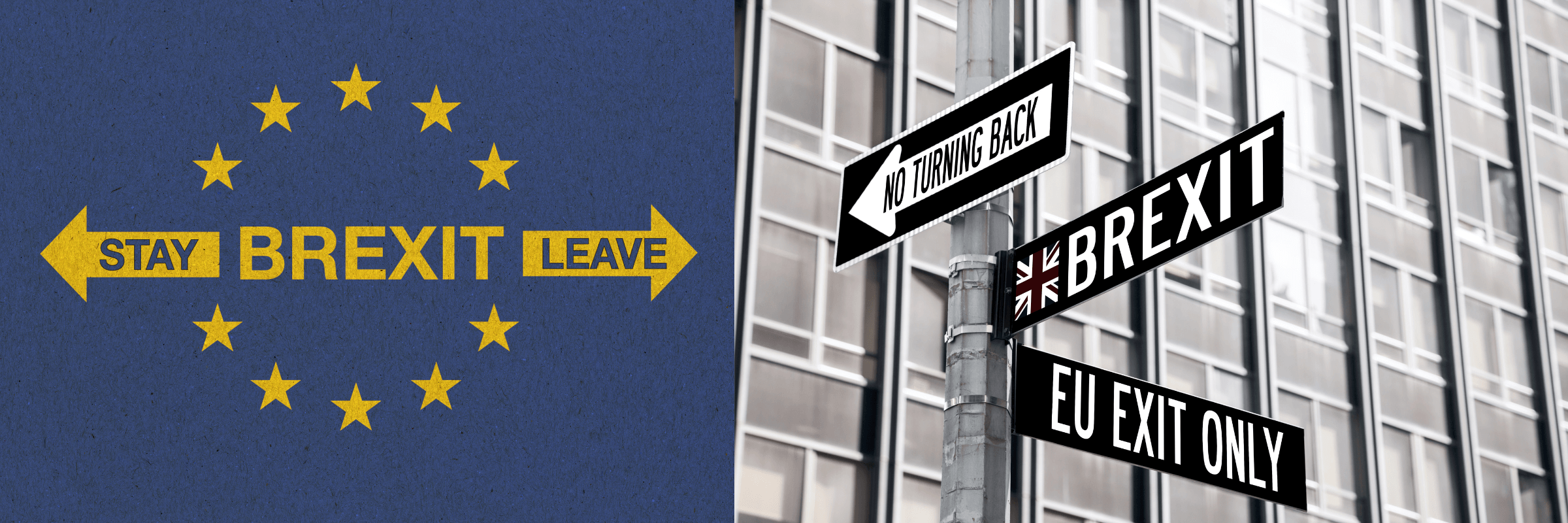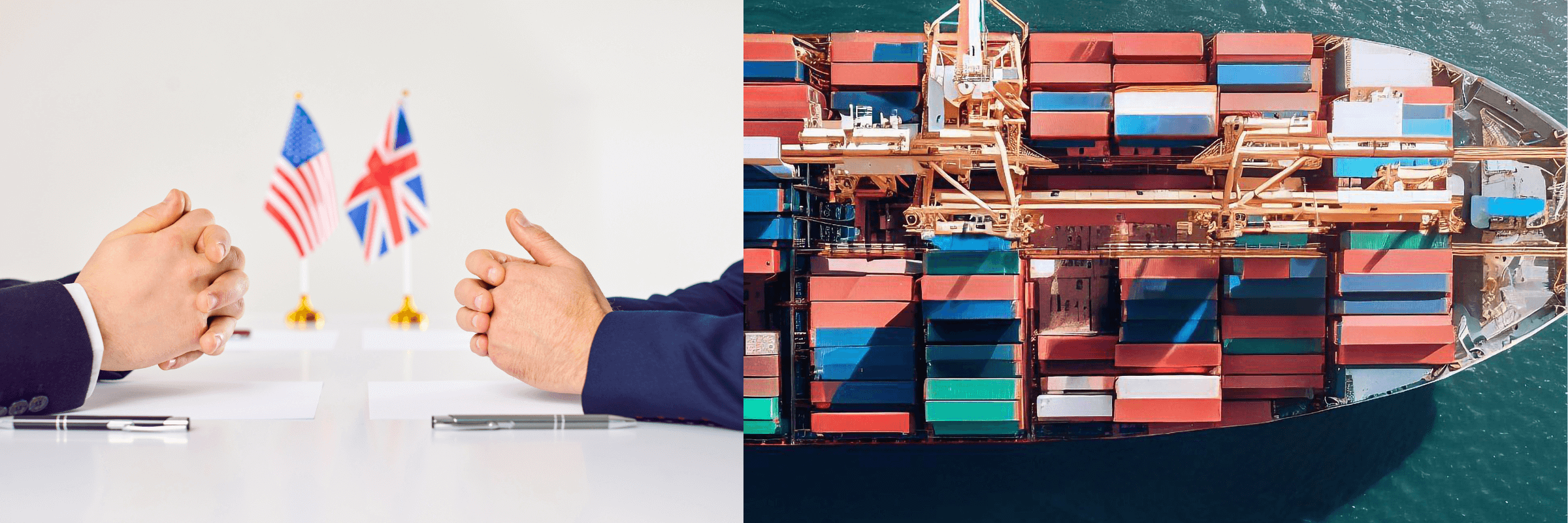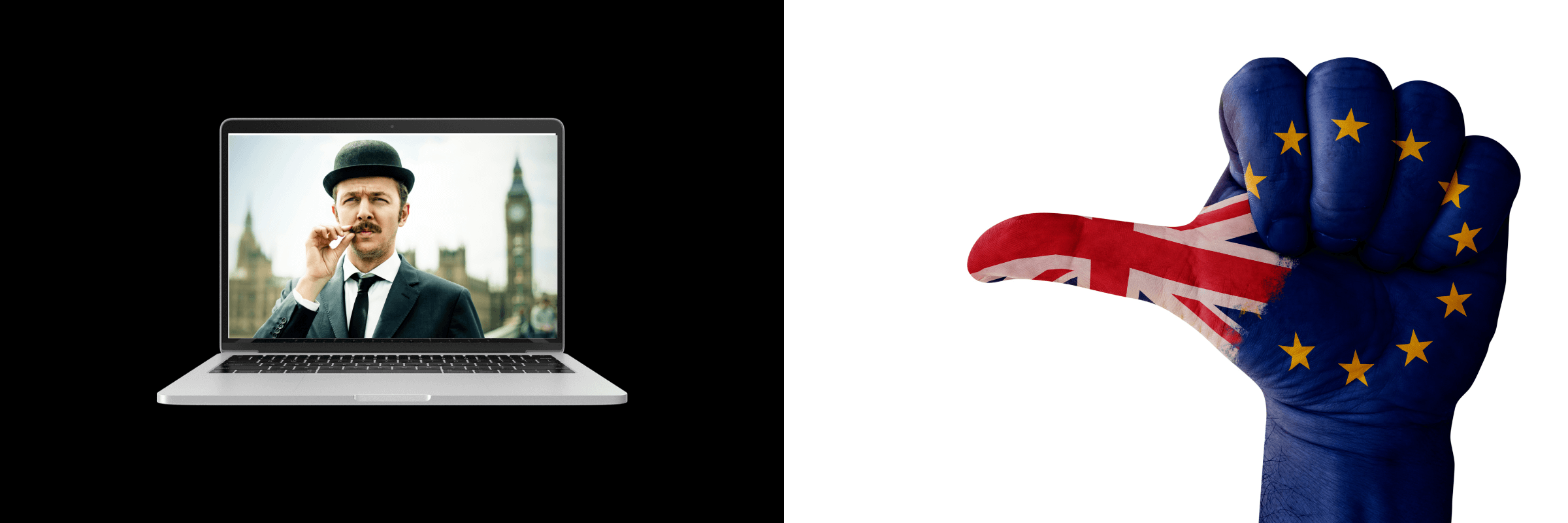
Navigating Brexit: Unraveling the Impact on Britain
The seismic shift of the UK’s departure from the European Union, ( Brexit ), has shaped the nation’s course and also stirred positive and negative conversations. In this exploration, we dissect Brexit’s roots, its implications for the British population, and the ongoing developments characterising post-Brexit Britain.
UK Brexit: Unraveling the Basics
What Was Brexit?
Brexit, “British exit,” signifies the UK’s decision to leave the European Union. This decision greatly altered the nation’s relationship with the EU, impacting governance, trade, and immigration policies.
The decision to pursue Brexit stemmed from a complex interplay of political, economic, and social factors. Proponents argued for increased national sovereignty, contending that EU membership restricted the UK’s ability to make independent decisions. The debate also centred around issues such as immigration control, economic autonomy, and the perceived erosion of British identity.
When did Brexit happen?
The pivotal moment in the Brexit saga occurred during the historic referendum on June 23, 2016. On this day, voters across the UK cast their ballots, determining whether the country should remain in or leave the EU. The outcome of the referendum had far-reaching consequences. It set the stage for a complex process of disentangling the UK from the European Union.
Brexit Referendum Result
The outcome of the referendum revealed a sharply divided nation. 51.9% voted in favour of leaving the EU and 48.1% voted in favour of remaining. This close margin underscored the complexity of the issues at stake. It also highlighted the diverse opinions within the British population.
Examining regional variations:
The breakdown of the vote across different regions of the UK added intricacy to the Brexit decision. While England and Wales largely supported leaving the EU, Scotland and Northern Ireland leaned towards remaining. This regional split reflected distinct perspectives and priorities, contributing to the intricate fabric of the overall result.
Analysing demographics:
Delving into demographic patterns provided insight into the factors influencing voting behaviour. Age, education, and urban-rural divides played significant roles. Younger and more educated individuals often favoured Remain, while older and less educated demographics tended to lean towards Leave. These demographic differences highlighted the diverse range of voices contributing to the final result.
Unraveling underlying factors:
Beyond the surface-level reasons, underlying factors shaped the decision to support Brexit. Concerns about immigration, sovereignty, and the perceived impact of EU regulations on British institutions fueled the Leave campaign. Additionally, economic anxieties, a desire for trade independence, and a belief in the potential for a more globally-focused Britain were integral elements of the pro-Brexit sentiment.
As news outlets dissected the aftermath of the referendum, public discussion became a dynamic arena shaped by continuous updates on Brexit negotiations, political reactions, and the evolving sentiment of the population. The media’s role in interpreting and sharing information further intensified the impact of this historical transformation on public awareness and understanding. Ongoing coverage served not only to inform but also to influence opinions, creating a landscape where the consequences and implications of Brexit remained at the forefront of national dialogue.

Is Brexit Good For Britain?
The ongoing debate on the impact of Brexit remains fervent. There are many arguments for and against shedding light on potential advantages and challenges. This section looks at these viewpoints, placing particular emphasis on the economic impact, regulatory independence, and trade deals as central components of the discussion.
Weighing the Pros and Cons:
Advocates of Brexit argue for increased regulatory autonomy, contending that it empowers the UK to shape its laws and policies independently. Additionally, proponents highlight the potential benefits of negotiating independent trade deals outside the EU framework, tailoring agreements to meet the nation’s specific needs and priorities.
Opponents express concerns about potential economic uncertainties and disruptions. They emphasised that the integration with the EU provided access to a large single market. Leaving this arrangement, they argue, may result in trade barriers and reduced market access, impacting sectors heavily reliant on EU trade.
Balancing the Narrative:
A balanced examination of economic impacts becomes paramount in navigating the challenges of the Brexit narrative. Regulatory autonomy, seen as a key advantage, enables the UK to set its standards, fostering a more agile and responsive regulatory environment. This newfound freedom holds the potential for tailoring regulations to specific industries, promoting innovation, and streamlining decision-making processes.
Independent trade deals emerge as pivotal in the post-Brexit landscape. Brexiteers anticipate expanded global trade partnerships and increased economic flexibility. On the other hand, critics express concerns about the time and effort required to negotiate such deals. Ongoing economic forecasts and global reactions play a crucial role in gauging the success of these endeavours.
Economic Impact Takes Centre Stage:
The heart of the Brexit debate lies in its economic implications, influencing the UK’s prosperity and global standing. The potential benefits extend beyond domestic policies. They foster an environment where the UK can adapt swiftly to changing economic landscapes and technological advancements.
The quest for independent trade deals amplifies economic considerations. Advocates envision a Britain unshackled from EU trade regulations, free to explore and cultivate partnerships globally. News updates on these negotiations provide real-time insights into the progress and challenges, of pos-Brexit, shaping public perception and expectations.
Acknowledging Uncertainties and Disruptions:
Despite potential advantages, the path to economic independence is not without hurdles. The process of untangling from existing trade agreements, establishing new ones, and adapting to a changed economic landscape poses challenges. Continuous news updates on economic forecasts help navigate uncertainties, offering valuable insights into potential pitfalls and opportunities.
The dynamic nature of global reactions to Britain’s post-EU status complicates the narrative. Balancing the benefits of newfound independence with potential drawbacks requires a detailed understanding of economic shifts and geopolitical implications. Staying ahead of global reactions becomes integral to assessing the broader impact of Brexit on Britain’s economic future.
As the narrative unfolds, scrutinising the economic implications of Brexit requires a detailed understanding of multifaceted arguments, ongoing negotiations, and global responses. The economic impact is not a monolithic concept. Rather it’s a complex interplay of advantages, challenges, and uncertainties shaping the trajectory of post-Brexit Britain.

Which Celebrities supported Brexit?
Celebrities from the UK, spanning various fields, actively shaped public perception during the Brexit discussion. Here we can look at the world of celebrity endorsements for the Leave campaign, exploring motivations and dissecting their impact on public sentiment.
A Glimpse into Celebrity Endorsements:
The Brexit campaign witnessed well-known celebrities aligning with the Leave campaign, infusing star power into the political landscape. Figures from the entertainment, business, and sports sectors stepped forward, publicly advocating for the UK’s exit from the EU.
High-profile individuals, such as businessman James Dyson, actress Joan Collins, and politician Michael Gove, publicly endorsed Brexit, leveraging their prominence and influence across diverse demographics. Business leaders, in particular, highlighted the potential economic advantages they foresaw outside the EU, contributing a business perspective to the campaign.
In addition to traditional media, celebrities utilised social media platforms to amplify their voices. Tweets, posts, and endorsements shared across these channels reached millions, creating an additional layer to the public discussion surrounding Brexit.
Impact on Public Opinion:
Celebrities wading into the Brexit debate brought a unique dimension to the discussion. Many with their endorsements potentially influenced public sentiment. Their prominence granted them a platform that transcended traditional political channels, connecting with audiences in a more personal and relatable manner.
The celebrity support for Brexit was not only about the individuals expressing their views but also about the resonance of those views with their fan bases. The influence of celebrities extended beyond the political sphere, tapping into the cultural fabric of the nation. Their voices became part of the broader narrative shaping public opinion.
While it is challenging to precisely quantify the impact of celebrity approval on public opinion, the visibility and reach of these figures undoubtedly contributed to the diversification of perspectives on Brexit. Celebrities became conduits through which complex political issues reached a wider audience. This in turn injects a sense of familiarity and relatability into an otherwise intricate and polarised debate.
Evolution of Endorsements’ Significance:
The evolving significance of celebrity endorsements throughout the Brexit campaign reflected the fluidity of public sentiment. As news outlets extensively covered these endorsements, public reactions became integral to understanding the dynamic relationship between celebrities and their followers.
Some celebrities sparked debates, while others resonated positively with specific demographics. The impact of celebrity voices unfolded over time, shaping and reflecting the evolving landscape of public opinion. In the ever-changing Brexit narrative, celebrities added an additional layer of complexity, demonstrating the mutually beneficial relationship between themselves and the public they sought to sway.
As the Brexit campaign progressed, UK celebrity endorsements continued to be a talking point. They prompted discussions not only on Brexit but also on the role of celebrities in political discussion. Whether through interviews, public statements, or social media engagement, they remained a prominent feature in the ongoing dialogue. This left a lasting imprint on the intricate tapestry of Brexit perceptions.

Pros of the UK Leaving the EU: Immigration Dynamics
Understanding the Immigration Narrative:
Immigration took centre stage during the build-up to Brexit. It fueled discussions about sovereignty, national identity, and economic considerations. This section delves into the post-Brexit immigration landscape, unravelling the narrative and examining its various aspects.
The discussion around immigration extended beyond numbers, focusing on the principle of control. Supporters of Brexit argued for enhanced control over immigration policies, emphasising the UK’s need to independently determine who enters the country. Understanding this account requires exploring public sentiment, which sought an adjustment of immigration dynamics in line with UK interests and priorities.
Examining legislative changes became crucial in understanding shifts in immigration. The ability to shape laws independently post-Brexit allowed the UK to tailor immigration policies to its economic and social needs. This facet of the story went beyond restrictive measures, aiming to create a more responsive and adaptable immigration system. One capable of addressing the evolving challenges and opportunities faced by the UK.
Examining the Positives of Brexit on Immigration:
Delving into the positives of Brexit on immigration opens a detailed exploration of potential benefits central to the Leave campaign’s narrative.
Enhanced Control: One of the key arguments for leaving the EU was the desire for enhanced control over UK borders. Post-Brexit, the UK gained the ability to set its immigration rules, determining entry criteria based on national priorities. This newfound independence aimed to address concerns about the strain on public services and infrastructure. One that promotes a sense of control over the nation’s demographic makeup.
A Skills-Based System: A skills-based immigration system introduced post-Brexit would seek to prioritise individuals with specific skills. One’s who’s talents align with the nation’s economic needs. This approach aims to ensure that immigration contributes to the growth and development of key sectors. It would also address skill shortages and bolster the overall competitiveness of the British workforce.
Implications for British Citizens’ Job Opportunities:
Examining the positives of Brexit on immigration extends to its potential impact on job opportunities for British citizens. Brexiteers argued that a more controlled immigration system could lead to a more balanced job market. One where British citizens have increased access to job opportunities. This narrative aimed to address concerns about job competition and wage suppression attributed, in part, to unrestricted immigration.
News coverage played a pivotal role in shaping public understanding of these changes. Reports on legislative shifts, economic implications, and societal reactions provided a rich context for understanding the evolving immigration dynamics post-Brexit. This context offered insights into the practical implications of the theoretical shifts in immigration policies. It allows the public to gauge the real-world consequences on jobs, communities, and the overall social fabric.
In essence, the pros of leaving the EU in the realm of immigration dynamics were carefully tied to the pursuit of national independence, economic alignment, and an adjustment of immigration to better serve the interests of the UK and its citizens. The ongoing story surrounding immigration post-Brexit underlines the importance of this aspect in shaping the broader course of the nation.

Pros of Brexit: Trade and Goods
Analysing the Trade and Goods Landscape:
Economic considerations in the aftermath of Brexit extend beyond immigration to the complex realm of trade and goods. Here we can analyse potential advantages, unravelling the complexities of positive trade deals and a more adaptable economic strategy post-Brexit.
The trade and goods landscape post-Brexit marks a shift in the UK’s approach to international commerce. Freed from the constraints of EU trade agreements, the nation can now forge independent trade relationships tailored to its economic interests. This shift introduces a layer of adaptability, allowing the UK to respond dynamically to global economic trends and emerging opportunities.
Examining the economic strategy involves navigating the intricate web of trade negotiations and agreements. The departure from the EU Customs Union and Single Market implies an adjustment of trade policies. It requires a focus on bilateral agreements and partnerships. Understanding this requires looking into the details of trade deals, their implications for different sectors, and the overall impact on the UK’s economic path.
Highlighting Positive Trade Deal Outcomes:
Positive outcomes for the UK arising from trade deals post-Brexit contribute significantly to the evolving economy. We can now look at potential benefits derived from the UK’s newfound independence in trade negotiations.
Adaptability in Economic Strategy:
The ability to craft bespoke trade deals enables the UK to turn swiftly in response to changing global dynamics. This adaptability is a cornerstone of the post-Brexit economic strategy. It allows the UK to align trade policies with evolving priorities and market demands. By shedding the uniformity imposed by EU trade agreements, Britain gains a strategic advantage in tailoring economic strategies to its unique strengths.
Expanded Global Market Access, Post-Brexit:
Independent trade deals open avenues for the UK to diversify its trading partners, expanding beyond the EU. This diversification mitigates reliance on any single market, enhancing the resilience of the UK’s economy. Access to new markets facilitates the export of British goods and services, fostering economic growth and competitiveness on a global scale.
Sector-Specific Benefits:
The negotiation of trade deals allows the UK to secure sector-specific benefits, addressing the unique needs of various industries. Whether it’s the financial sector, manufacturing, or services, tailored agreements provide a platform for sustained growth and competitiveness. This sectoral granularity ensures that the benefits of trade deals resonate across diverse segments of the economy.
Inclusion of Ongoing News Updates: News updates on trade negotiations, agreements, and economic forecasts are integral to grasping the real-time implications of Brexit on the trade and goods landscape. Regularly updated information enriches the reader’s understanding, providing insights into the progress of trade negotiations. This along with the economic impact of agreements and the broader implications for businesses and consumers alike.
In essence, the pros of Brexit in the trade and goods domain revolve around the strategic advantages gained through discussions in trade negotiations. The adaptability of the UK’s economic strategy expanded global market access, and sector-specific benefits paint a multifaceted picture of the positive outcomes shaping the nation’s economic future in the post-Brexit era. Ongoing news updates serve as a dynamic lens, offering readers a real-time perspective on how Brexit continues to mould the economic landscape.

Supporting the Post-Brexit Economy
Engaging the Public in Economic Revival:
As the post-Brexit era unfolds, actively involving the public in economic revival becomes paramount. We call to action for the British public, to offer practical insights on how people and communities can actively contribute to the ongoing recovery.
Understanding Economic Interconnectedness:
Encouraging an understanding of economic mutual correction is fundamental. Individuals can play a crucial role by staying informed about economic trends, government initiatives, and local business landscapes. This awareness forms the basis for informed decision-making, enabling people to align their actions with broader economic objectives.
Promoting Local Businesses:
Contributing to economic recovery involves supporting local businesses. Choosing to buy from local establishments, whether it’s a local bakery or a family-run shop, stimulates the local economy. Embracing a mindset of favouring local products and services encourages a resilient economic ecosystem and sustains community livelihoods.
Individual and Community Actions:
Empowering individuals and communities to take active roles in economic recovery involves practical actions that extend beyond mere awareness.
Entrepreneurship and Innovation:
Fostering entrepreneurship and innovation at the individual and community levels sparks economic growth. Initiatives that support local entrepreneurs, mentorship programs, and collaborative efforts to launch innovative ventures inject dynamism into the economy. This approach not only encourages innovation but also creates job opportunities.
Sustainable Practices:
Adopting sustainable practices on an individual and community level contributes to a resilient and environmentally conscious economy. Embracing eco-friendly lifestyles, supporting sustainable businesses, or participating in community sustainability initiatives align with the global trend towards responsible and green economies.
Community Initiatives for Economic Resilience:
Communities drive economic resilience by initiating projects that address local needs. By setting up cooperative ventures, supporting community-led enterprises, or launching programs we can enhance local skills and employability. This in turn strengthens the social fabric and lays the foundation for sustained economic vitality.
News Features Highlighting Brexit Success Stories:
News features play a vital role in shaping public perception. Success stories can become instrumental in inspiring and motivating the public to actively contribute to economic recovery.
Showcasing Community Initiatives:
Post-Brexit news outlets can actively showcase community-led initiatives that have positively impacted local economies. From revitalising towns to fostering innovation hubs, these stories serve as blueprints for others to replicate and contribute to broader economic recovery efforts.
Spotlighting Innovative Businesses:
Highlighting innovative businesses that have thrived post-Brexit provides tangible examples of economic success. These stories not only celebrate entrepreneurial spirit but also inspire others to explore innovative ideas and contribute to economic growth in unique ways.
Celebrating Sustainable Practices:
News features that celebrate sustainable practices, elevate the importance of environmentally conscious economic approaches. These stories underscore the positive impact of adopting sustainable practices on both local economies and the planet.
In essence, supporting the post-Brexit economy is a collective effort. It starts at both individual and community levels. Actively involving the public in economic revival requires a combination of awareness, real actions, and community-driven initiatives. News features that showcase success stories also play a crucial role in highlighting the positive contributions of individuals and communities. They inspire others to actively participate in shaping a resilient and thriving post-Brexit economic landscape.
Positive Ways the British Public Can Support the Economy
Nurturing Local Businesses:
Actively supporting local businesses is a cornerstone of encouraging economic resilience. The British public can contribute by consciously choosing to buy locally sourced products and services. This includes patronising local shops, markets, and independent businesses, thereby keeping revenue within the local economy.
Advocating for UK-Made Products:
A key way to bolster the economy is by championing products made in the UK. Public preference for locally manufactured goods stimulates domestic industries. This in turn creates a ripple effect of economic benefits. By encouraging friends and family to choose British-made products it reinforces the value of supporting local and UK businesses.
Embracing E-commerce Platforms:
Engaging with e-commerce platforms that specifically focus on promoting and selling UK-made products amplifies the reach of local businesses. Supporting online platforms dedicated to showcasing British craftsmanship and innovation opens up new avenues for these businesses to thrive in the digital landscape.
Community Engagement and Support:
Actively contributing to a sustainable economy involves adopting eco-friendly practices in daily life. This includes recycling, reducing waste, and supporting businesses that prioritise sustainable sourcing and manufacturing. By aligning consumer choices with sustainability, individuals collectively influence businesses to adopt environmentally conscious practices.
Encouraging UK Innovation:
Fostering innovation is crucial for economic growth. Individuals can support innovation by engaging with local startups, attending innovation events, and participating in crowdfunding campaigns for innovative projects. This not only provides financial support but also encourages a culture of creativity and entrepreneurship.
Engaging with Local Initiatives:
Participation in local community initiatives that focus on economic development strengthens the social fabric. Joining community-driven projects, such as farmers’ markets, pop-up events, or local fairs, provides direct support to entrepreneurs and small businesses. Such engagements contribute to a vibrant local economy.
Community-Led Success Stories:
News features highlighting successful community-led initiatives offer inspiration and practical insights. Examples of communities revitalising their local economies through cooperative ventures, creative projects, or sustainable initiatives serve as blueprints for others. These success stories underscore the tangible impact of collective efforts in fostering economic resilience.
Grassroots Movements in Action:
Real-life examples of grassroots movements that have positively impacted the economy provide a tangible demonstration of the power of community engagement. Whether it’s a community-led regeneration project, a crowdfunding campaign for a local business, or a cooperative effort to promote regional products, these movements showcase the strength of collective action.
In essence, nurturing economic resilience in the post-Brexit era requires active participation from the British public. Supporting local businesses, advocating for sustainable practices, embracing innovation, and engaging with community initiatives are tangible ways individuals can contribute. Real-world examples of successful initiatives and grassroots movements illustrate how collective efforts can lead to a more resilient and thriving economy, reinforcing the idea that everyone has a role to play in shaping the economic landscape of the UK.

FAQs on Life After Brexit
Addressing Common Concerns
Travel Regulations:
Many individuals worry about changes in travel regulations post-Brexit. This includes changes in visa requirements and potential disruptions to travel plans. Clear communication on the new travel regulations, visa processes, and necessary documentation can ease concerns. Providing details on how these changes may impact holiday plans, work-related travel, and leisure trips is crucial for reducing uncertainties.
Residency Requirements:
Another common concern revolves around residency requirements for British Expats living in the EU and vice versa. A comprehensive breakdown of residency application processes, timelines, and necessary paperwork can help reduce anxieties. Clarifying the rights and responsibilities associated with residency post-Brexit ensures people can navigate this aspect with confidence.
UK Consumer Rights:
Individuals often have questions about their consumer rights post-Brexit. This in particular regards online purchases, product warranties, and cross-border transactions. It requires clear and concise information on how consumer rights are affected. This along with any changes in regulations, and steps to take in case of disputes empowers individuals to make informed choices and safeguards their interests.
Providing Clarity on Uncertainties:
Economic Impact:
Uncertainties about the economic impact of Brexit, including job security and potential changes in prices, are common concerns. Regular news updates on UK economic indicators, job market trends, and government initiatives can contribute to a more informed and assured public.
Healthcare Access:
Questions about healthcare access, especially for those travelling or residing in the EU, are common. Offering insights into changes in healthcare agreements, the validity of European Health Insurance Cards (EHIC), and any additional requirements for medical coverage helps people plan for their healthcare needs with confidence.
Educational Opportunities:
Clarifying the impact of Brexit on educational opportunities, such as student exchanges, research collaborations, and Erasmus+ programs, is crucial. Sharing details about funding changes, student visas, and collaborative projects helps the academic community and students adjust to the new situation.
UK Trade and Business Relations:
Uncertainties related to trade and business relations are key concerns for both individuals and businesses. Offering insights into new trade agreements, potential opportunities, and government support for businesses helps foster a sense of stability. Also addressing specific industries and how they may be affected provides targeted information for those involved in various sectors.
Security and Defence Cooperation:
Given the linked nature of security and defence, clarifying the post-Brexit terrain in these areas is essential.
Answering questions about how the UK works with other countries, shares information, and contributes to global security helps people see the wider impact of Brexit in the UK.
A proactive approach to answering frequently asked questions on life after Brexit involves providing clear and comprehensive information. By tackling common concerns and offering regular updates through continuous news coverage, people can navigate the post-Brexit landscape with confidence. This will help them make informed decisions that align with their personal and professional interests.

Government Initiatives: Promoting Positives of Brexit
The Role of the UK Government in Shaping Perception:
Transparent Communication:
The UK government plays an important role in shaping public perception through clear communication. It must provide transparent, accessible information on the positive aspects of Brexit. This includes things such as economic opportunities, regulatory independence, and strengthened global partnerships. Ensuring that government messages are easily understandable by a diverse audience is crucial for effective communication.
Engagement with Stakeholders:
The UK government needs to communicate with different groups, such as UK businesses, community leaders, and experts, to get ideas and work together to share positive Brexit stories.
Involving diverse voices in the conversation provides a more comprehensive view of the benefits of Brexit and addresses concerns through informed discussions.
Public Consultations:
Initiating public consultations on key aspects of Brexit allows the government to directly involve citizens in decision-making processes.
Asking the public for their opinions on trade, immigration, and economic plans not only makes people feel more powerful but also shows that the government is committed to including everyone in decision-making. This participatory approach contributes to a more positive perception of government initiatives.
Strategies for Promoting Positive Brexit Narratives:
Highlighting Economic Opportunities:
The government can strategically highlight economic opportunities arising from Brexit. This involves showcasing success stories of businesses thriving post-Brexit, emphasising new trade partnerships, and communicating how regulatory autonomy fosters innovation and competitiveness. By consistently sharing positive economic outcomes, the government can shape a narrative that emphasises the tangible benefits of Brexit.
Showcasing Global Partnerships:
Emphasising the UK’s ability to forge independent global partnerships is essential. The government can highlight diplomatic successes, trade agreements with non-EU countries, and collaborations on international initiatives. Communicating how Brexit enhances the nation’s global influence and strengthens alliances contributes to a positive narrative on the international stage.
Addressing Concerns Proactively:
The government must proactively and transparently address concerns. Whether it’s issues related to immigration, trade disruptions, or economic uncertainties, acknowledging challenges and outlining comprehensive strategies to mitigate them helps build confidence. By openly addressing concerns, the government demonstrates accountability and a commitment to navigating potential hurdles.
Utilising Digital Platforms:
In the digital age, leveraging online platforms is crucial for reaching a wide audience. The government can employ social media, official websites, and other digital channels to disseminate positive narratives effectively. Engaging content, visuals, and real-life stories can make government initiatives more relatable and accessible to the public.
Collaboration with Media Outlets:
The government should actively collaborate with media outlets to ensure accurate and widespread reporting of positive narratives. Providing journalists with access to relevant information, facilitating interviews with key figures, and organising press briefings contribute to a more balanced and favourable media coverage. Building strong relationships with media partners enhances the reach and impact of positive narratives.
Government initiatives to promote the positives of Brexit require a multi-faceted approach. Transparent communication, stakeholder engagement, public consultations, strategic narrative-building, and active collaboration with media outlets collectively contribute to shaping a positive perception. By consistently highlighting economic opportunities, showcasing global partnerships, addressing concerns proactively, utilising digital platforms, and fostering collaboration, governments can play a pivotal role in steering public perception in the post-Brexit landscape. Regular news updates on these initiatives provide a dynamic view of their progress and impact over time.

Positive Stories in the Brexit Era
Thriving Businesses in New Markets:
One uplifting narrative in the post-Brexit era is the success of businesses venturing into new markets. It’s important to highlight the resilience and adaptability of British businesses by showcasing examples of enterprises adapting to the changing landscape. This can be seen as an example when entering into fresh markets and capitalising on newfound opportunities. Real-life stories of growth, innovation, and market expansion serve as beacons of inspiration for others navigating the complexities of the post-Brexit economic terrain.
Individuals Overcoming Obstacles:
The resilience of individuals facing challenges post-Brexit is a testament to the human spirit. We need to hear individuals overcoming obstacles, whether in the context of career transitions, navigating new regulatory frameworks, or embracing entrepreneurial ventures. By sharing these personal triumphs, it emphasises the strength of individuals in adapting to and thriving in the evolving post-Brexit environment.
Communities Coming Together:
The sense of UK community and collaboration has been a source of a positive in the post-Brexit era. Success stories that showcase communities coming together to support local initiatives, revitalise neighbourhoods, or launch cooperative ventures contribute to a narrative of collective resilience. By celebrating community-driven achievements, we can highlight the power of unity in navigating the challenges posed by Brexit.
Highlighting Achievements and Resilience:
Integrating news reports provides a real-world perspective on the achievements and resilience witnessed in the post-Brexit era. By curating the latest news stories that spotlight success and triumph over challenges, we can ensure that the positive Brexit stories are grounded in the changing and active aspects of the evolving situation.
News coverage adds depth to the understanding of how businesses, individuals, and communities navigate and thrive amid change.
Inspiring Hope for the Future:
Beyond showcasing success stories, the section aims to inspire hope for the future. By highlighting achievements and resilience, it communicates a message of optimism and possibility. The narrative emphasises that, despite uncertainties and changes, there are tangible examples of success and progress that serve as beacons for what can be achieved in the post-Brexit era.
Celebrating Innovation and Adaptation:
The positive stories featured celebrate innovation and adaptation as crucial components of post-Brexit success. Whether it’s businesses adopting innovative strategies, individuals embracing new career paths, or communities creatively addressing challenges, the section underscores the dynamic and adaptive nature of British society. These stories serve as inspirations for others to explore innovative solutions and approaches in their respective fields.
Positive stories in the Brexit era go beyond merely showcasing success; they provide a nuanced and multifaceted view of achievements and resilience. By integrating news reports, highlighting thriving businesses, individuals overcoming obstacles, and communities uniting for common goals, this narrative aims to paint a vivid picture of the positive transformations occurring in the wake of Brexit. The stories not only celebrate accomplishments but also inspire a sense of hope and possibility for the future.

The Benefits of Brexit Across Key Sectors
Let’s explore the benefits that Brexit has ushered in across key sectors. This can be seen by shedding light on the transformative impact on the military, education, NHS, job market, border control, and economic prosperity. By examining each sector individually, we can provide a full view of the broader advantages associated with the UK’s departure from the EU.
NHS (National Health Service):
The NHS has experienced positive shifts post-Brexit, with a focus on reinforcing healthcare resilience. Government initiatives have prioritised strategic planning for healthcare access, medical research collaborations, and investments in cutting-edge technologies. Success stories within the NHS reflect advancements in patient care, streamlined processes, and collaborative efforts that position the healthcare system for long-term sustainability.
Employment:
The job market will witness a surge in opportunities as the UK exercises greater control over its economic policies. Reports already highlight success stories of job creation across various sectors. These range from emerging industries to traditional sectors benefiting from regulatory independence. Government initiatives aimed at up-skilling the workforce and encouraging entrepreneurship contribute to a dynamic job market that adapts to the evolving post-Brexit economy..
Education:
Brexit has presented opportunities for a reimagined educational terrain. The UK now has the independence to tailor its education policies, fostering innovation and addressing specific UK priorities. Positive Brexit news emerges as universities collaborate with global institutions, attracting diverse talent and international research partnerships. Government initiatives promoting educational excellence and flexibility contribute to a dynamic and competitive academic environment.
Borders:
Brexit has enabled the UK to take control of its borders, emphasising security and efficient immigration policies. Success stories reflect advancements in border control technologies, streamlined immigration processes, and collaborative efforts with international partners to ensure border integrity. Government initiatives have focused on striking a balance between safeguarding national security and facilitating smooth cross-border movements.
Military:
The post-Brexit era has afforded the UK greater flexibility in shaping its military strategies and collaborations. The ability to independently forge international partnerships outside the EU framework enhances the nation’s defence capabilities. News reports highlight instances of successful joint military exercises, collaborations with non-EU allies, and strategic manoeuvres that underscore the newfound agility and autonomy of the UK’s military operations.
Economic Prosperity:
Economic prosperity has been a focal point of the post-Brexit narrative, with the UK embracing newfound economic freedoms. Success stories within industries such as trade, manufacturing, and technology highlight the resilience and adaptability of the British economy. Government initiatives promoting innovation, trade partnerships, and economic diversification contribute to a narrative of sustained economic growth and prosperity.
Positive Brexit Conclusion:
As Britain navigates the complexities of post-Brexit reality, this extended article serves as a comprehensive guide, offering detailed insights into the multifaceted impact of the UK’s departure from the European Union. By examining the military, education, NHS, jobs, borders, and economic prosperity individually, we unveil a nuanced understanding of the positive outcomes stemming from Brexit. News updates, success stories, and government initiatives woven into each sector’s exploration provide a dynamic and evolving perspective on the transformative journey of post-Brexit Britain.



